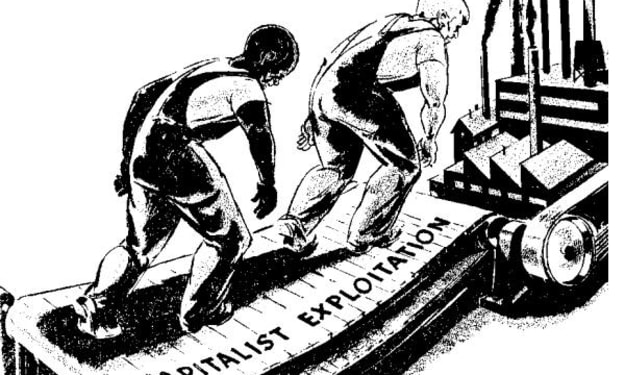An Overhaul of Modern Economics
A basic explanation for a massive change.

An idea has been brewing within my mind for some time and a place such as this may be just the arena to share such ideas. The problem I wish to tackle is the obvious lack of equality and meritocracy within the current economic system. However, I have constructed an idea which may help to organize our economy/economies and create a more just and rewarding society.
Another, personal reason for designing such a system was to allow a bridge to be created between capitalism and communism which would ease the transition. As we have seen throughout history, the immediate and hurried transition from capitalism to something resembling "communism" has never been an easy nor a successful one. Russia, other Soviet Republics and North Korea, all failed experiments in rapid capitalist-communist transition.
Many sociological and political analysts believe that the transition must be a smooth and progressive one like our transition from feudal to capitalist. Capitalism will progress through socialism to communism. We cannot definitively know how a communist society will look as the general consensus of all people will have to be taken into account and applied. However, we can start to look at the basic elements of socialism and start to plan a society based around liberty, equality, and fraternity.
The idea I have in mind is as follows. Within one nation state there are to be four sovereign currencies in place: the first is for essentials (we shall call this 'a'), the second is for luxuries ('b'), the third encompasses dwellings and other buildings (not the land beneath as this shall remain the property of all citizens, c), and the fourth ('d') is used to measure the currency's overall worth and to allow trade on international markets.
An exchange rate would be in operation internally to allow surplus of one currency (which could also be viewed as a deficit of another) to be exchanged for the required currency. I imagine that the exchange rate between a and b would remain fairly constant where c would rise and fall in connection with demand. It is worth noting here that renting properties would not be paid for with our c currency but rather a. C would only be used for the purchase of a property and a landlord would not be allowed to advertise properties under any other division of our national currency other than a. Rent control would also be in place although I do not feel it necessary to go any further into this at this time.
Wages would be divided into a standard (required) living wage paid in our a currency and a top-up paid in b. The living wage would be based on the cost of living and in addition to this all companies would be required to exceed the living wage. Benefits/social security, would be paid in the units designated as a. All citizens would be able to exchange these currencies through an internal exchange bureau.
I do support the idea of a universal wage given to all citizens, although if we were to introduce this it would surely take the place of the benefits/social security system. All persons would be entitled to this and it would be paid regardless of earnings below a wage bracket (roughly £30,000 p/a in current economic terms).
My belief is that this system would go some way towards eradicating poverty among the poorest in our society, it would destroy the proletariat's reliance on the petty-bourgeoisie and bourgeoisie to provide housing (whom currently exploit this basic right to an extortionate degree) and would help eradicate black market trading (although this problem is rooted a lot more deeply than just in our current economic system and will- quite probably- always exist).
Having written this short piece I feel that there must be things that I have missed and it is still a work in progress but I feel that opening this idea up to a wider audience may allow this idea to grow and develop within a larger community.





Comments
There are no comments for this story
Be the first to respond and start the conversation.